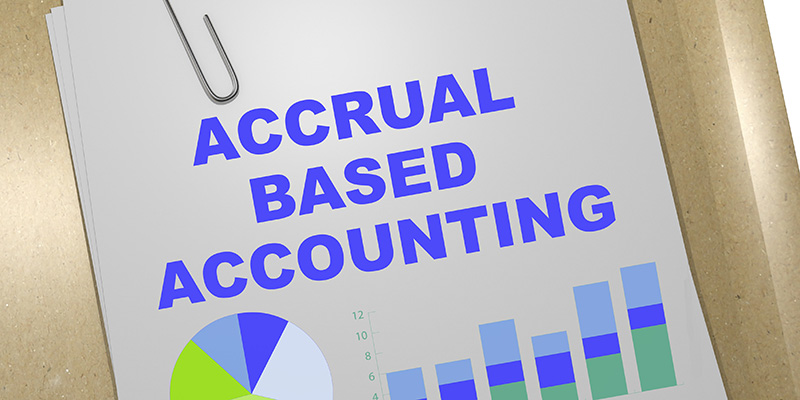How Can Association Management Software Help With Accounts Receivable?
Although homeowners associations are non-profit organizations, they still earn money for the purpose of maintaining the community. Keep up with your HOA accounts receivable with the help of an association management software.
What Are HOA Accounts Receivable?
A homeowners association receives money from its members in the form of regular dues or fees. The association treats this as revenues, which are then used to fund the various expenses within the community. Not all of these revenues are received at once, though. This is what is referred to as HOA accounts receivable.
Simply put, accounts receivable are money the association expects to receive. It is money that debtors owe to the HOA. This can take many forms. As explained in the previous paragraph, it can be the regular dues that homeowners owe to the association. It can also take the form of fees or monetary fines that homeowners incur as a result of violating covenants or rules.
Other times, an association’s accounts receivable can come from vendors issuing refunds. If an HOA undergoes litigation with a homeowner or vendor, any monetary damages the association expects to receive as a result can also be considered as accounts receivable.
Benefits of an HOA Software
While some homeowners associations can manage their receivables manually, there are many advantages to switching to a digital platform. In addition to other benefits such as work order management and homeowner communication, here is how an HOA software can help your association with HOA accounts receivable:
1. Manage Multiple Communities
HOA boards are usually responsible for looking after their own community, but that is not the case with management companies. Association management companies typically handle multiple communities at a time.
With so much on their plate, it can be difficult to track which receivables belong to which community. Additionally, every community has its own set of rules and payment guidelines.
With HOA software, management companies can juggle multiple accounts simultaneously. Separating communities into profiles makes it easier to stay on top of accounts receivables as well as other items.
2. Customize HOA Assessments and Fees
 It is not unusual for regular assessment amounts to vary each year. A surplus in the budget for one year could affect the following year’s budget.
It is not unusual for regular assessment amounts to vary each year. A surplus in the budget for one year could affect the following year’s budget.
Rising labor rates, inflation, and a number of other factors can also influence how much an HOA charges in fees or the need for special assessments. Moreover, some associations do not charge a flat rate across all members. Some homeowners may pay more depending on the size of their unit.
This constant change can make things confusing when recording assessments manually. Plus, extra fees like pet fees and violation fees can further complicate the matter.
An HOA software, though, can simplify the process by allowing customization of fees and assessments. You can designate a profile for each homeowner and modify the charges as you see fit.
3. Save Time Through Automated Processes
It is no secret that technology has helped streamline many of our modern-day processes. The same applies to HOA accounts receivables. Manual processes can take up so much of your time — time better spent on more important issues plaguing your community. Additionally, a manual approach has more room for error.
An HOA software comes with fully automated features that can save you both time and money. You can pull up and print out statements of accounts for each homeowner with ease.
You can send out reminders for upcoming or overdue receivables. Most programs come integrated with calendars that you can use to schedule reminders so that they go out on their own at the appropriate time.
Management companies, in particular, can significantly benefit from automation. When you handle a multitude of associations and communities, the ability to process account statements and send reminders in large batches become a necessity.
4. Make Collections and Follow-Ups Easy
Perhaps one of the most tedious jobs associated with accounts receivables is the collection. Even though you send out timely reminders, some homeowners just miss deadlines either accidentally or intentionally.
With the help of an HOA software, you can keep track of these overdue accounts receivables in one neat place. Monitor how long payments have gone unpaid for each homeowner. You can also send follow-up reminders to homeowners who have yet to settle their balances.
In addition to this, you can also keep tabs on debtors who have settled payments with the association. For example, if a homeowner pays their association dues, you can log this information into the program immediately. Most programs even allow you to attach supporting photos and documents (such as deposit slips), making it easy for you to cross-reference payments.
5. Generate Reports Quickly

Accounting will always remain a part of association management. That means preparing various accounting reports, such as income statements, balance sheets, and the like.
When it comes to accounts receivables, the associated report is the HOA statement of receivables.
Preparing the HOA statement of receivables is no easy task. If you have no prior experience or familiarity with this statement, you will find it fairly difficult to create or understand one.
An association management software, though, does the job for you. With technological help, you can generate a statement of receivables for any time period and learn how much the association is owed in one fell swoop.
A statement of receivables also usually comes with aging information. This will help you determine which overdue accounts have gone past 30, 60, and even 90 days.
6. Integrated Accounting System
Association management software offers fully integrated accounting solutions that comply with Generally Accepted Accounting Principles (GAAP). On top of keeping track of your HOA accounts receivable, an HOA software can help you with other accounting problems, too. This includes managing your HOA accounts payable, which are amounts and payments your association owes to other parties.
Efficiency Beyond Manual Solutions
Managing HOA accounts receivable can come as a challenge, especially for large associations or management companies with plenty of clients. When done improperly, accounts can get mixed up and overdue amounts may go uncollected. With an HOA software, though, you can say goodbye to endless hours of perusing through books and statements.
If your association or management company requires help handling accounts receivable, Condo Manager offers a fully integrated HOA software. Reach out to us today to learn more!
RELATED ARTICLES:
- HOA Accrual Accounting: Why It’s The Best For HOAs
- Your Ultimate Guide to HOA Fees
- 4 HOA Financial Reporting Mistakes To Look Out For



 HOA boards must first send an HOA special assessment notice to inform homeowners of an impending collection. However, if the amount exceeds the HOA special assessment limit stipulated in the governing documents, the board must obtain approval from the homeowners.
HOA boards must first send an HOA special assessment notice to inform homeowners of an impending collection. However, if the amount exceeds the HOA special assessment limit stipulated in the governing documents, the board must obtain approval from the homeowners. HOAs can rely on their insurance coverage to cover the costs of property damage due to natural disasters. However, there are instances when the insurance payout is not enough to cover.
HOAs can rely on their insurance coverage to cover the costs of property damage due to natural disasters. However, there are instances when the insurance payout is not enough to cover.
 Given that there are three accounting methods that associations can choose from, you may wonder why most people favor the accrual basis of accounting.
Given that there are three accounting methods that associations can choose from, you may wonder why most people favor the accrual basis of accounting.
 Overreporting expenses is one of the HOA financial reporting problems to look out for. Mistakes in your HOA financial statements might simply be due to human error but it can also be a sign of fraud or embezzlement.
Overreporting expenses is one of the HOA financial reporting problems to look out for. Mistakes in your HOA financial statements might simply be due to human error but it can also be a sign of fraud or embezzlement. If financial management is not the forte of the board, considering consulting or hiring professionals.
If financial management is not the forte of the board, considering consulting or hiring professionals.

 If your daily living expenses are already too high for you to handle, you may feel tempted to skip paying your condominium fees altogether. That is a bad idea, though.
If your daily living expenses are already too high for you to handle, you may feel tempted to skip paying your condominium fees altogether. That is a bad idea, though.
 Here are the top advantages of getting HOA accounting software:
Here are the top advantages of getting HOA accounting software: HOA accounting software definitely makes financial management easier for many communities, self-managed or otherwise.
HOA accounting software definitely makes financial management easier for many communities, self-managed or otherwise.
